Set Up Company In Vietnam - Challenges And Opportunities
- 30/11/2022

 CONTENT
CONTENT
 CONTENT
CONTENT
Set up a company in Vietnam - Challenges and opportunities
Vietnam's economy is "openness" so it is in contact with the world economy. Vietnam also faces its own challenges in laying the groundwork for development. Vietnam's economy in 2019 is likened to a "colorful picture" with many highlights. In this article, we draft out the challenges and opportunities about the process of setting up a company in Vietnam.
The world economy is forecast to slow down, or even decline slightly. At the same time, world trade also faces downside risks. The internal problems of the Vietnamese economy include institutional "stagnation" such as economic restructuring, retargeted equity ownership ratio of state-owned enterprises, and few large projects are implemented in public investment activities. The above context causes businesses to face many challenges in setting up a company in Vietnam.
How do the policy responses covid affect the entrepreneurial system in Vietnam?
Vietnam overcame the difficult year of 2021 when the COVID-19 pandemic caused serious economic and human losses. The country experienced a serious blockade in the middle of the year, lasting nearly five months, shutting down production and disrupting the supply chain. In Vietnam, before the complex development of the COVID-19 pandemic, which has a major impact on the lives of businesses and people, the Vietnamese government responded by issuing some regulations to support businesses.
The Government always supports businesses to remove difficulties, stabilize production and return to work. The government's support package to stabilize the economy includes:
1. 10% discount on retail electricity prices in production and operation areas
According to Decision No. 648/QĐ-BCT dated March 20, 2019, retail electricity prices in production and operation areas will be reduced by 10% during peak, normal and off-peak hours. Electricity as production.
2. Financial support
Prime Minister Nguyen Xuan Phuc has just issued a document directing the State Bank to guide credit institutions to meet production capital needs, speeding up administrative procedures such as shortening the processing time for dossiers, speeding fast administrative procedures for loans, lowering fees and interest rates for customers. Difficulties due to COVID-19 (contract worth about 250 trillion VND).
3. Solution suggestions for businesses
As for taxes, companies must quickly apply for the exemption and delay filing until business resumes. By working online from home, you can reduce office costs such as utilities and stationery.
Additionally, businesses should gradually shift to online sales to reduce spending on marketing strategies.
Vietnam's economy is heavily influenced by policy responses with covid
The pandemic is expected to subside by 2022 as vaccination becomes more common among the Vietnamese population. With respect to the medium-term outlook for the next five years, several key drivers are expected to continue to drive Vietnam into one of Asia's fastest growing emerging markets.
First, Vietnam will continue to benefit from relatively low production wages compared to China's coastal provinces, where manufacturing wages have risen rapidly over the past decade.
Second, compared to many other regional competitors in Southeast Asia, Vietnam has a relatively large and well-trained workforce, making it an attractive manufacturing hub for foreign companies and multinationals.
Third, capital spending is expected to grow rapidly, reflecting continued strong foreign direct investment by foreign multinationals as well as domestic infrastructure spending. For example, the Government of Vietnam estimates that it needs $133 billion for new power infrastructure by 2030, including $96 billion for power plants and $37 billion for grid expansion.
All of the above conditions help Vietnam have many motivations for the development of the business environment and attract foreign investors.
Challenges in the process of setting up a company in Vietnam
There are three main challenges: land, access to capital, taxation and administrative procedures. These challenges have improved in recent years, but many problems remain, especially those related to land.
Some specific challenges when setting up a company in Vietnam include:
There are many challenges for foreign investors in setting up a company in Vietnam
Vietnamese procedures are used entirely in Vietnamese
All reporting and submission procedures, including permits, must be written in Vietnamese. Documents in English or other languages must be translated into Vietnamese and approved by the district court. It doesn't stop there. Notarized translation documents must be certified by the Vietnamese embassy.
Tax in vietnam
Although Vietnam is undergoing complex tax reforms, 10 corporate taxes are still payable each year. Other taxes include VAT and social insurance.
Through the reforms, the Vietnamese government intends to simplify all tax calculation and reporting procedures, remove tax ambiguity and create a favorable business environment.
There is still a lot of work to be done by the competent authorities in improving tax filing technologies such as electronic tax filing.
Payment in cash
Vietnam mainly relies on cash for domestic payments. There is no ATM system, more than 90% of transactions in the country are done in cash.
Corrupt domestic banks have also created more challenges for Vietnamese people to accept and trust other types of payment methods.
However, the government aims to make Vietnam one of the few cashless countries in the region, focusing on ease of use of digital payment systems and adoption of technology.
Opportunities in the process of setting up a business in Vietnam
Skilled young population helps the economy recover quickly
Foreign investors can also benefit from Vietnam's population growth. The third largest population in Southeast Asia is relatively young, with more than half of the population under the age of 30. Its large, well-educated and relatively cheap workforce has become one of Vietnam's most important assets.
Vietnam has a literacy rate of over 90%, one of the countries with the highest literacy rate in Southeast Asia. Foreign investors take advantage of the technology awareness, solid business community and the country's general openness to new ideas. At the same time, when setting up a company in Vietnam, investors pay cheaper labor costs and allow local employees to compete equally.
Low cost to set up a company
Living costs in Vietnam are relatively cheap compared to other countries in Southeast Asia. Some decent meals cost less than $ 2. Meals at fine dining are less than US $ 30 per person. Monthly rents for modern full-service apartments start at just $ 400. This is greatly influenced by the exchange rate itself. In early 2020, US $ 1 is worth more than 23,000 dong. And this is a big advantage as the cost of living in Vietnam matches the cost of running your business.
Launching a business itself costs only a small portion of the initial capital. On average, investors spend about $ 20,000 to set up a limited liability company in Vietnam. Technically, there is no minimum capital requirement. For example, you might start at $ 5,000.
Advantage from low investment cost and high profit of foreign investors when setting up a company in Vietnam
Important and improved trade agreements
Vietnam is serious about establishing and maintaining trade agreements with countries around the world. This is evidenced by the fact that the country is improving bilateral business relations with all Southeast Asian countries, including China, Hong Kong, Japan, South Korea, Australia and even Chile. This guarantees Vietnam's economic stability. Trump's tariffs and EU trade agreements are the latest big news that can boost Vietnam's economy and create more opportunities for investors and business owners.
All four positive facts above are the basic benefits of starting a business in Vietnam. There are many other benefits to this, depending on the fields you enter.
If your business is flexible, you don't need a license. However, depending on the particular activity, you may be able to apply for a permit. We recommend contacting your local lawyer to compare prices with recommendations.
Diverse types of businesses registered in Vietnam
-
Limited Liability Company-100% A foreign-owned limited liability company can be established in Vietnam with one shareholder, regardless of nationality or whether the person is a resident of Vietnam. Shareholders then appoint a director who must come to Vietnam and apply for a work permit.
-
Joint Venture-Some are also known as one foreign limited liability company, which is the most common type of foreign affiliate established in Vietnam. The company was founded by at least one Vietnamese shareholder and one foreign investor. However, license delays are common in this structure.
-
Limited Company-A corporation is a company founded by three or more shareholders of all nationalities, whether or not they live in Vietnam. If the company appoints a legal representative and foreign director, that person must come to Vietnam and apply for a work permit.
-
Branch-A foreign company that has been in business for at least 5 years can also set up a branch in the country. Resident representatives must be shown along with the fulfillment of other obligations. This option is not recommended as it allows investors unlimited liability.
There are many types of businesses for foreign investors to choose from
-
Representative Office-You can also open a representative office in Vietnam to find a company that has been doing business abroad for a year. The representative office is 100% foreign owned, but the company is not allowed to engage in commercial or production-related activities.
Learning about the business environment in Vietnam is very important for you to determine the type of business and the procedures for setting up a business.
LHD LAW FIRM ADVISE →
- Apply for investment license (certificate) for investors who are individuals, organizations and foreign companies in Vietnam;
- Apply for investment license (certificate) associated with the establishment of projects, enterprises and foreign affiliates for individual investors, institutions, foreign companies in Vietnam;
- Registration of business lines, operation contents for investment projects, enterprises, branch associated with investment projects for private investors, institutions, foreign companies in Vietnam;
- Registration of application for import and export, distribution, wholesale, retail;
- Registration for examination of investment projects.
Procedures for setting up businesses abroad invested in Vietnam, including the steps taken to establish the following:
I. CONDITIONS ESTABLISHED COMPANY WITH FOREIGN INVESTMENT CAPITAL:
As organizations and companies (in operation since 1 year and older), foreign individuals wishing to invest in the form of established companies (JSC, joint venture, Company Ltd a members or two or more members) in Vietnam.
II. RECORDS ESTABLISH COMPANY WITH FOREIGN INVESTMENT CAPITAL:
Profile implementing procedure establish companies with foreign investment capital in Vietnam
· A written request for issuance of investment certificate (form I-3. Investors see instructions on how to sample text in Appendix IV-1 of Decision No 1088/2006 / QD-BKH 19 / 10/2006 of the Ministry of Planning and Investment).
· Report on the financial capacity of the investor by investor made and responsible for the content, the report must clearly reflect the investment capital sources that investors use to invest and investors have sufficient financial capacity to implement the project. Investors may also submit confirmation of the bank account balance (for individual investors) or Financial Statement (for investors being legal) to prove.
· Draft Charter of the Company corresponding to each type of business (Co., Ltd a member; Co., Ltd 2 members or more; JSC). The company draft charter must have sufficient signatures: The legal representative, the company's owners, members or representatives authorized for limited companies; Legal representative, of the founding shareholders or their authorized representatives of the founding shareholders for joint stock companies. (The contents of the charter must be fully in accordance with Article 22 of the Law on Enterprises).
· Member List corresponding to each type of enterprise (form I-8 or I-9 of Decision No 1088/2006 / QD-BKH dated 19/10/2006 or form II-4 of Circular No. 14/2010 / TT-BKH dated 04/6/2010 of the Ministry of Planning and Investment)
· Documents certifying the legal status of the investor: For investors as individuals: A valid copy of one of the personal identification documents: identity card, passport or other legal personal identification papers still valid (Article 24 of Decree dinh43 / 2010 / ND-CP of the Government dated 15/04/2010). For investors being legal: Applying for the profile of the establishment of Company Ltd two or more members, JSC and partnerships: Valid copy of the decision of establishment, certificate of business registration or other equivalent document. Applying for the profile of the establishment of one member Company Ltd: A valid copy of the establishment decision, the certificate of business registration or other equivalent document, charter or other equivalent documents of owners company (unless the owner is a State company). For documents of foreign organizations, the text must be consularly legalized (copy notarized or certified by the issuing agency no more than 3 months before the filing)
· Decide on authorization / written authorization of investors for authorized persons in case the investor is organized and valid copy (notarized copy), one of the personal identification papers of authorized representative.
· The joint venture contract for the form of investment establishes venture economic organization between domestic investors and foreign investors (See Article 54 of Decree 108/2006 / ND-CP dated 22/09 / 2006).
· In case of investment projects using state capital must have the written approval of the use of state capital for investment by the competent agencies.
III. ORDER PROCEDURES ESTABLISHED COMPANY WITH FOREIGN INVESTMENT:
• Number of applications submitted: 04 sets of records (including 01 original in Vietnamese or Vietnamese and common foreign language) is bound into each book.
• Time to consider and grant investment certificates from the date of receipt of a valid application: 15 working days.
• Time to register and grant tax registration certificates (tax code) is 05 working days from the date of issuance of investment certificate.
Registration change procedures for business
• The duration of the procedures of seal engraving is 04 working days after filing (after the investment certificate).
Note when the procedures established enterprises with foreign investment capital
NOTE:
• In case, the investor authorizes the organization or other individual carry out the procedures of investment when filing in Department of Planning and Investment must present ID card / passport / Authentication legitimate personal and written authorization .
• The text in a foreign language must be translated into Vietnamese and certified by organizations with translation functions.
• For the purposes of the management in the localities, as well as facilitate the review of the lawfulness of the location, recommended investors to present the legal documents relating to head office address and location of the project implementation (valid copy of the lease contract location notarized or the relevant legal documents prove legal right to use that place) enclosed with the dossiers.
Lawyers of LHD Law Firm
If you need more information about services supporting foreign investment consultancy in Vietnam, please contact the LHD Law Firm.

![Setting Up Business In Vietnam [New 2024]](data/News/setup-business-in-viet-nam-5-step-guides_1703231174.jpeg)
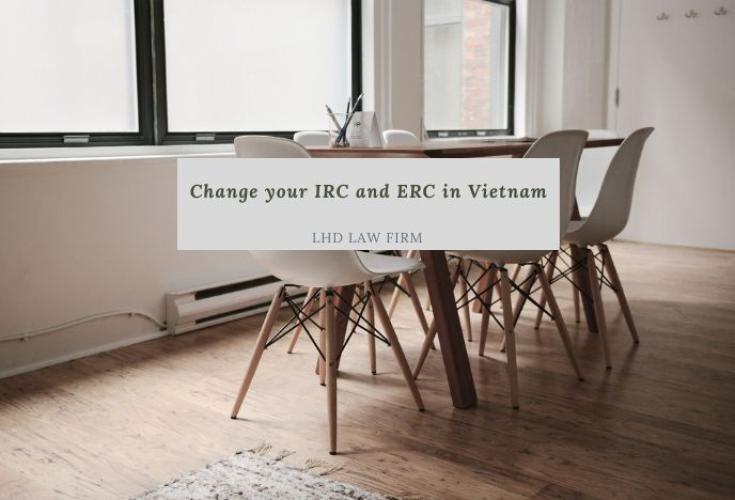
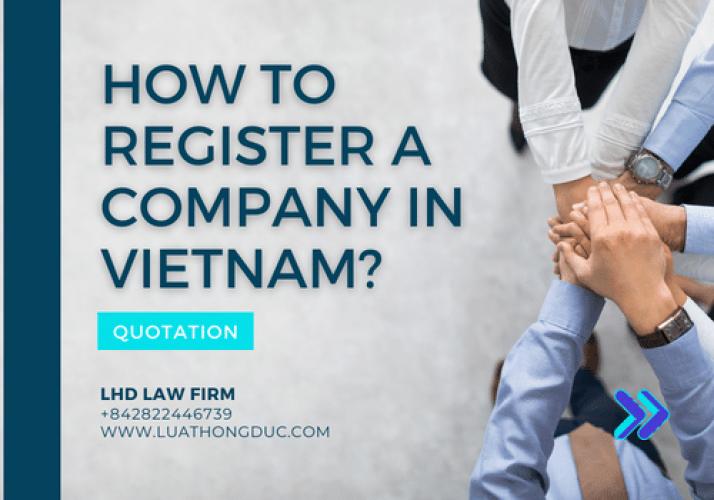


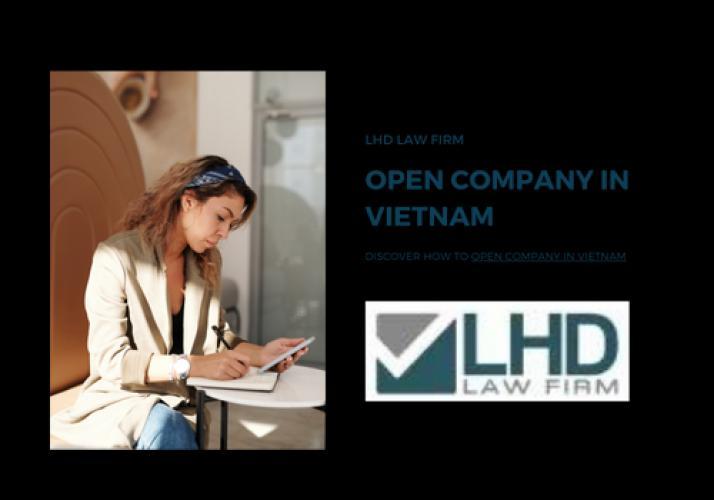
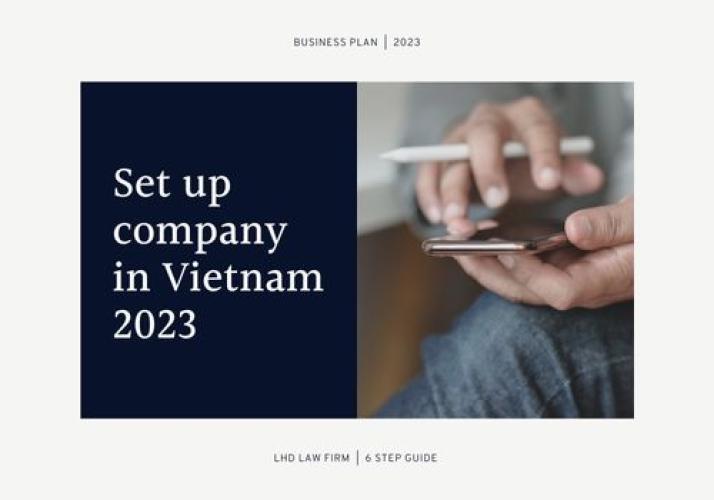

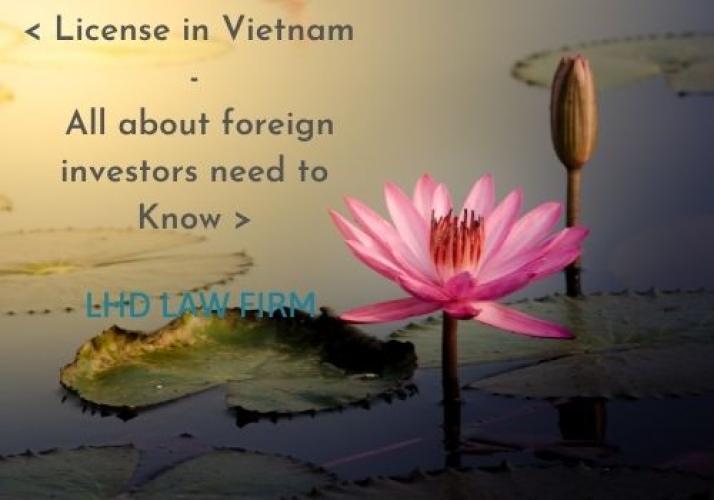

0 comment